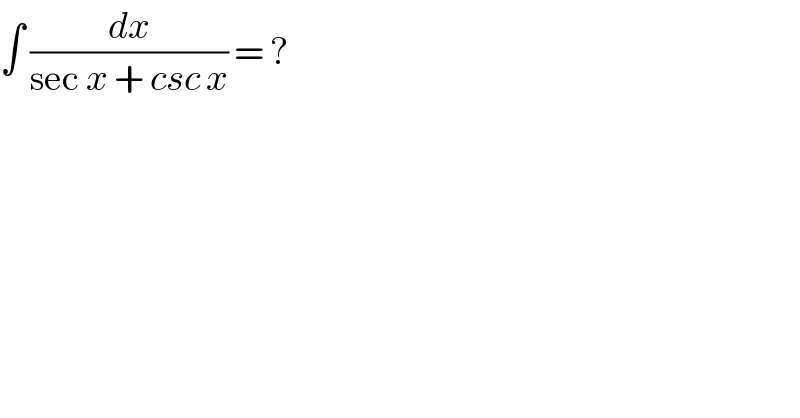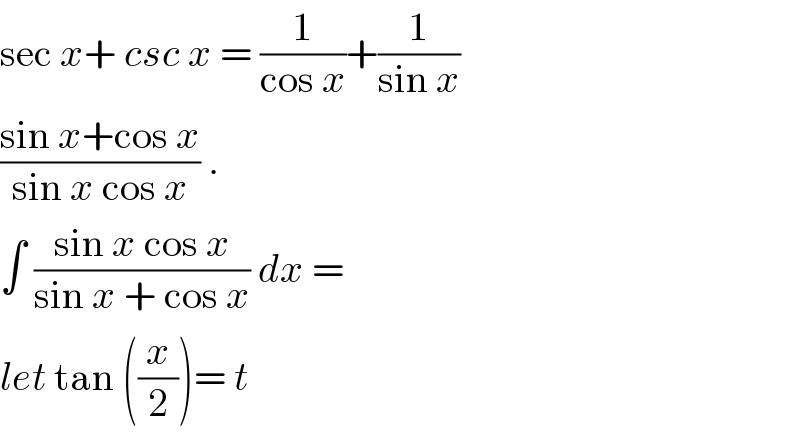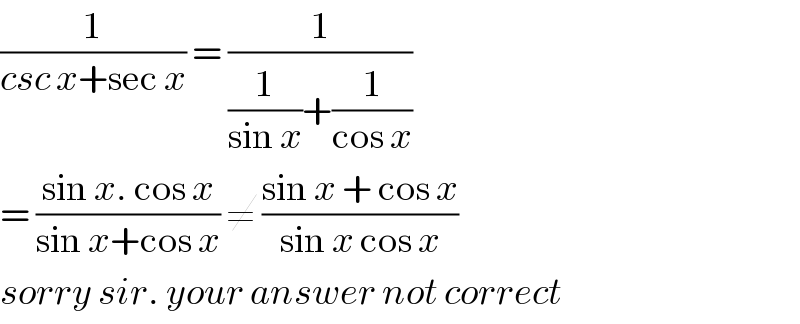Question Number 82185 by jagoll last updated on 19/Feb/20

Commented by john santu last updated on 19/Feb/20

Commented by mathmax by abdo last updated on 19/Feb/20

Answered by TANMAY PANACEA last updated on 20/Feb/20
![∫((sinx+cosx)/(sinxcosx))dx 2∫((sinx+cosx)/(1−(1−2sinxcosx)))dx 2∫((d(sinx−cosx))/(1−(sinx−cosx)^2 )) [formula ∫(da/(1−a^2 ))] ln(((sinx−cosx+1)/(sinx−cosx−1)))+c](https://www.tinkutara.com/question/Q82297.png)
Commented by jagoll last updated on 20/Feb/20

Commented by TANMAY PANACEA last updated on 20/Feb/20

